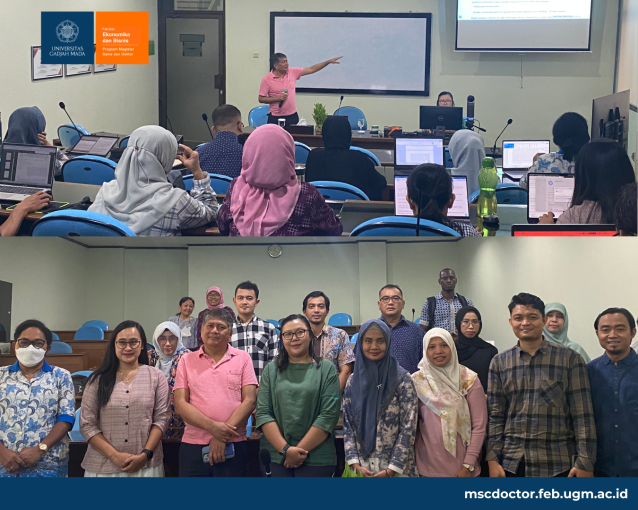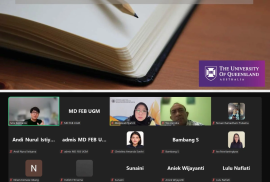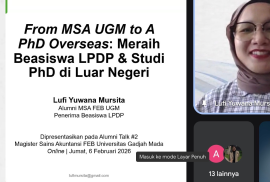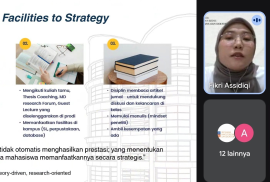
The Master of Science and Doctoral Program of FEB UGM held a guest lecture titled “From Challenges to Opportunities: Agentic Artificial Intelligence for Low-Resource Languages.” The event featured Prof. Nir Kshetri, a renowned academic from the University of North Carolina, Greensboro, USA, widely recognized for his work in technology, digital policy, and innovation-driven economic transformation. The lecture took place in the Satyajaya Room, 2nd floor of the Master of Science and Doctoral Building at FEB UGM, from 09:00 to 11:00.
In his presentation, Prof. Nir Kshetri highlighted the challenges of developing artificial intelligence (AI) for low-resource languages—languages that still faced limitations in terms of digital data, documentation, and technological support. While AI had made rapid advancements for global languages such as English, Mandarin, and Spanish, there were still few comprehensive solutions for local or minority languages, including many regional languages in Indonesia.
Through the approach of agentic AI—that is, artificial intelligence capable of making decisions and taking action based on specific contexts—Prof. Kshetri emphasized the tremendous potential that could be harnessed by speakers of local languages. He explained that, when properly directed, this technology could support cultural preservation, the development of mother-tongue-based education systems, and improve access to digital information and public services for communities that had long been marginalized in terms of technology.
He also stressed the importance of international collaboration among countries, academic institutions, and the tech industry in creating inclusive and unbiased AI models. According to him, the future of AI was not only about more advanced technologies but also about becoming fairer, more inclusive, and reaching all levels of global society.
The guest lecture strengthened FEB UGM’s commitment to delivering contextual and globally relevant learning. The discussion was dynamic and broadened participants’ perspectives on the intersection of AI, language policy, and social development. Participants expressed great enthusiasm and positively welcomed the interdisciplinary discourse, as it provided practical insights that directly addressed local challenges and contributed to sustainable development.




